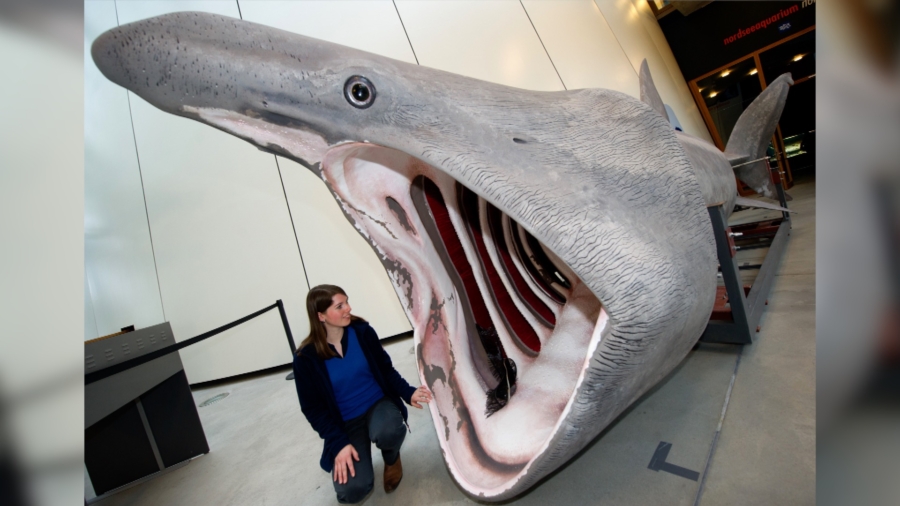The secret lives of basking sharks have been captured on camera by Britain’s first autonomous “SharkCam”—an underwater robot that tracks their movements and behaviors as they gather in the Inner Hebrides.
The large, yellow device, which is shaped like a torpedo, was deployed in the Inner Hebrides off the west coast of Scotland in July and filmed the interactions of the world’s second-largest fish.
#DYK the Basking shark is the world’s second largest fish just behind the whale shark????? We’re heading to Ireland to learn more about this gentle giant species with marine ecologist Emmett Johnston! #SharkWeek pic.twitter.com/kjzymekcDh
— Daily Planet (@DailyPlanet) August 2, 2019
Despite their prevalence in Scottish waters, little is known about the lives of basking sharks, who gather in large groups to feed on plankton in the Inner Hebrides between May and October.
Initial footage from the autonomous underwater vehicle (AUV), which was developed by the U.S.-based Woods Hole Oceanographic Institution (WHOI), showed the sharks potentially searching for food as they moved through the water column, feeding near the surface of the water and swimming close to the bottom of the sea.
The research team hopes that further analysis of the footage will reveal more about their social interactions, group behaviors and sex lives.
The technology, officially known as REMUS SharkCam, is able to track the sharks once they have been tagged and disappear underwater.
It captures wide-angle, high-definition video of the sharks from a distance and is also able to measure oceanographic data, such as ocean temperature in order to measure how far the sharks are from the bottom of the sea.
Researchers hope the project, which is funded by the WHOI as well as WWF/Sky Ocean Rescue, Scottish Natural Heritage and the University of Exeter, will strengthen a case for conservation in the area.
With new technology, we’ve captured 360° footage of basking shark behaviour for the first time in the UK – helping us make the case for a new Marine Protected Area! ????@SkyOceanRescue @WHOI @nature_scot @UniofExeter https://t.co/Okor5zr8p1
— WWF UK (@wwf_uk) August 7, 2019
By Emily Roe

